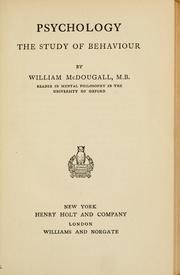
Transitive inference in pigeons may result from differential tendencies to reject the test stimuli acquired during training
Sign Up to like & getrecommendations! Published in 2019 at "Animal Cognition"
DOI: 10.1007/s10071-019-01257-2
Abstract: In the five-term, transitive inference task used with animals, pigeons are trained on four simultaneous discrimination premise pairs: A + B −, B + C −, C + D −, D + E −. Typically, when tested with the BD pair, most pigeons show a transitive inference effect,… read more here.
Keywords: stimulus; group; transitive inference; test ... See more keywords

The Effect of Retrieval Practice on Transitive Inference.
Sign Up to like & getrecommendations! Published in 2019 at "Experimental psychology"
DOI: 10.1027/1618-3169/a000467
Abstract: Compared to restudying, retrieval practice has often been found to enhance memory (the testing effect). However, it has been proposed that materials with high element interactivity may not benefit from retrieval practice. Transitive inference (TI)… read more here.
Keywords: effect; retrieval practice; practice; transitive inference ... See more keywords

Does cognition differ across species, and how do we know? Lessons from research in transitive inference.
Sign Up to like & getrecommendations! Published in 2021 at "Journal of experimental psychology. Animal learning and cognition"
DOI: 10.1037/xan0000301
Abstract: Comparative psychologists study cognition by characterizing the behavior of individual species and explicitly comparing behavior across species. We use the extensive comparative literature on transitive inference (TI) as a case study to evaluate four central… read more here.
Keywords: across species; psychology; transitive inference; associative processes ... See more keywords

Transitive Inference Remains Despite Overtraining on Premise Pair C+D-
Sign Up to like & getrecommendations! Published in 2018 at "Frontiers in Psychology"
DOI: 10.3389/fpsyg.2018.01791
Abstract: Transitive inference (TI) has been studied in humans and several animals such as rats, pigeons and fishes. Using different methods for training premises it has been shown that a non-trained relation between stimuli can be… read more here.
Keywords: transitive inference; overtraining premise; inference remains; remains despite ... See more keywords